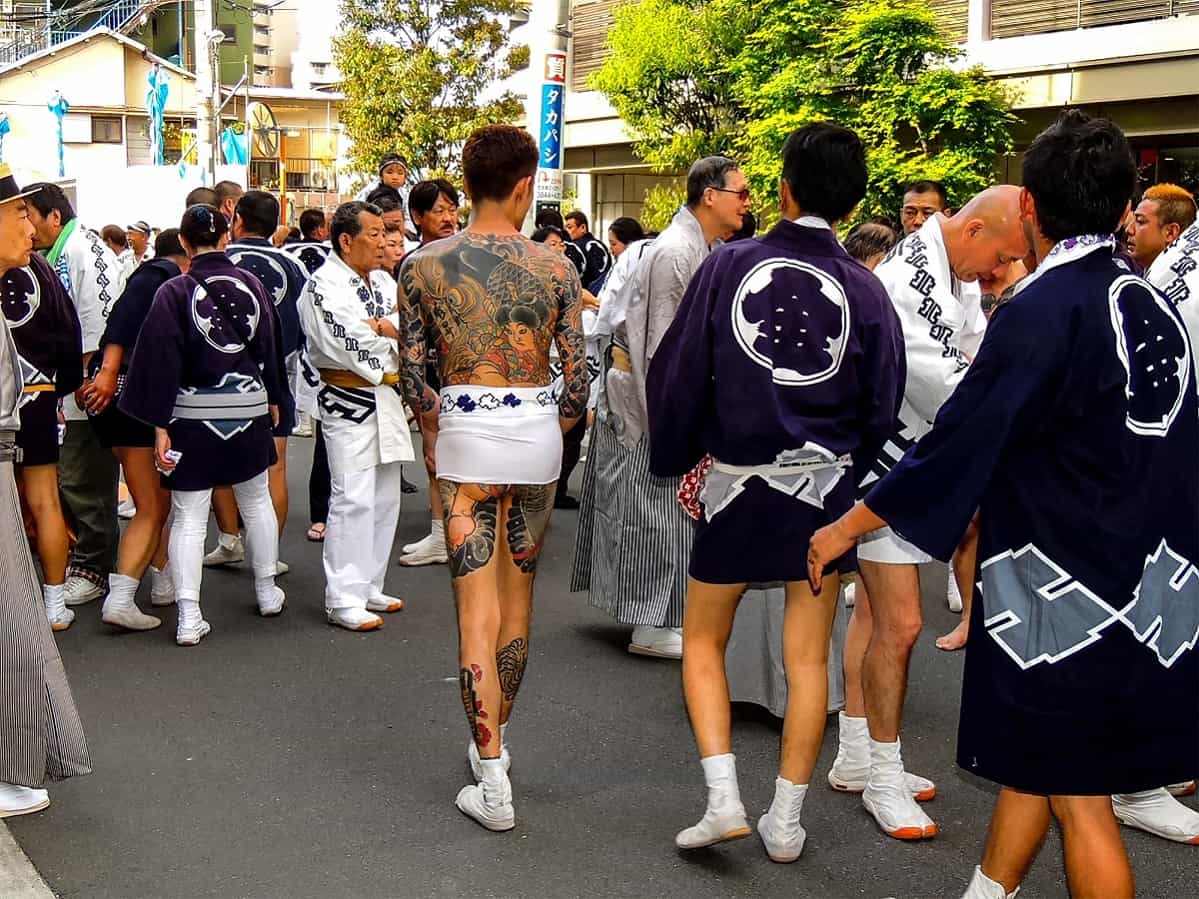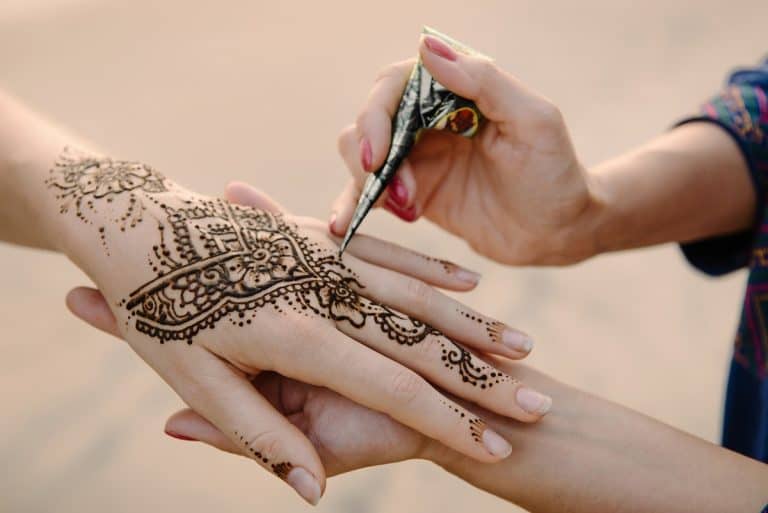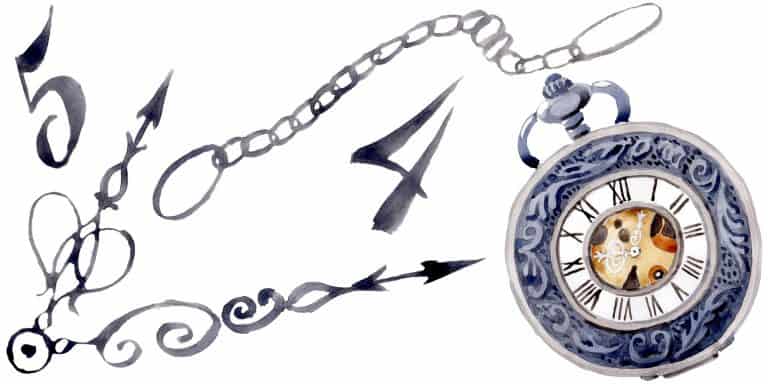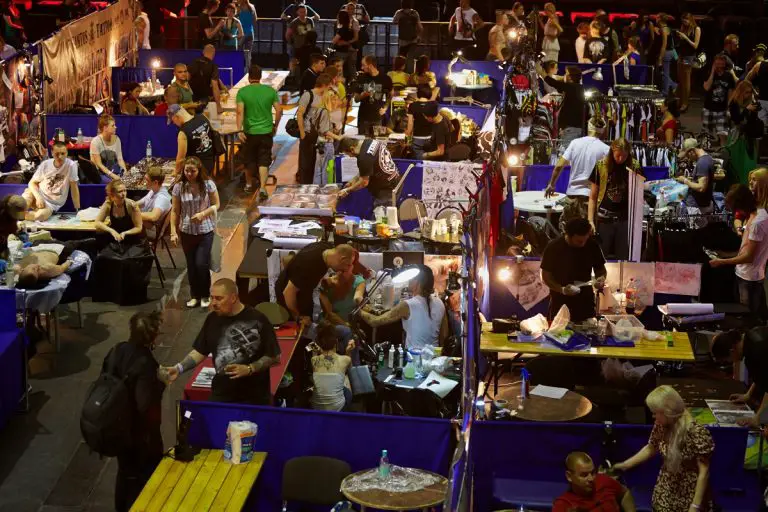Are Tattoos Illegal in Japan? (A Guide to Visiting Japan With Tattoos)
Because in the USA (and other countries in the West) tattoos are completely legal and normalized, it can be easy to forget that other countries and cultures of the world may have a different stance on body art.
Generally speaking, in almost every part of the world tattoos were considered forbidden, illegal, associated with crime, and generally frowned upon. Of course, in some parts of the world tattoos have always been an accepted cultural occurrence, openly welcomed and excepted by people to have them. We are all different, and that’s the beauty of having such different views and cultures.
However, as wonderful as it all sounds, tattoos are still frowned upon in some parts of the world. Even in the West, some employers, for example, won’t hire people with visible tattoos, as they may ‘affect’ public perception of the company in one way or the other; some people, especially the older generations, still associate tattoos with crime, misbehavior, problematic behavior, etc.
For today’s topic, we’ve decided to explore the tattoo status in the very Far East; Japan. Now, Japan is globally known for its incredible tattoo styles revolving around historic and cultural symbols. However, most of us know that tattoos in Japan are often sported by the members of the Japanese mafia, which isn’t a great start if we’re talking about tattoos being illegal over there.
But, we’ve decided to explore whether this is true or not, let’s dive right in! Let’s find out whether tattoos are legal or illegal in Japan!
Are Tattoos Illegal in Japan? (A Guide to Visiting Japan With Tattoos)
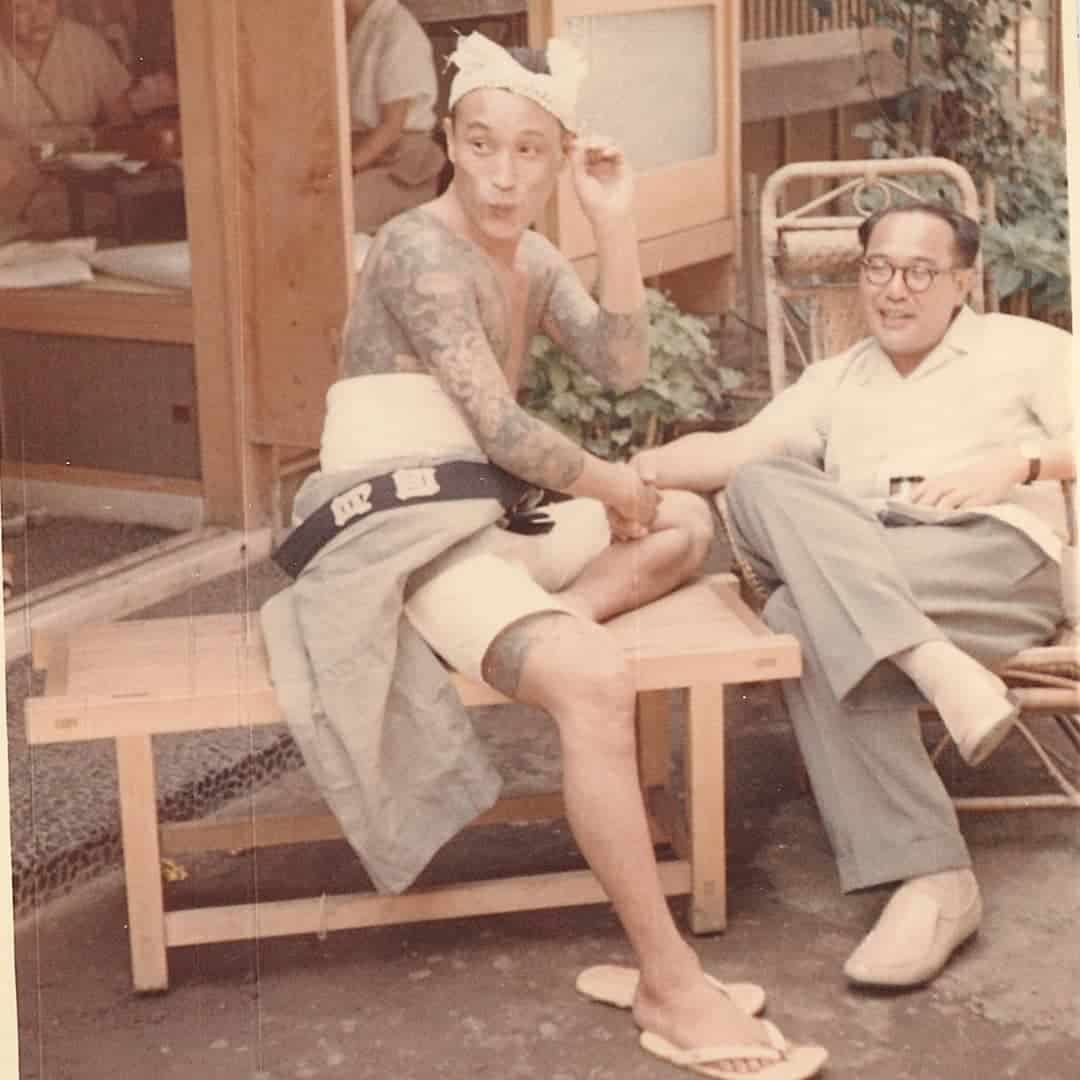
The History of Tattoos in Japan
Before we tackle the main topic, it is essential we dig a bit deeper into the very history of tattoos in Japan. Now, the globally-recognized traditional Japanese tattoo art was developed hundreds of years ago, in the Edo period (between 1603 and 1867). The tattoo arts was referred to as Irezumi, which literally translates to „insert ink“, and it was a term Japanese people used in this period to refer to what is nowadays known as tattoos.
Now, Irezumi, or the traditional Japanese art style was used to mark people who have committed crimes. The tattoos’ meanings and symbols, varied from one region to the other and depended on the type of crime committed. Tattoos would vary from very simple line markings around the forearm to bold, clearly visible kanji symbol markings on the forehead.
It is essential to point out that the Irezumi tattoo style doesn’t reflect the truly traditional Japanese tattoo art. Irezumi was clearly utilized for one purpose, and even nowadays, people simply do not use this term in the context of tattoos.
Of course, Japanese tattoo art kept evolving past the Edo period. The most notable Japanese tattoo evolution occurred under the influence of the ukiyo-e Japanese woodcut art. This art style incorporated landscapes, erotic scenes, kabuki actors, and creatures from Japanese folklore stories. Because it was widespread, ukiyo-e art quickly became an inspiration for tattoos all across Japan.
As Japan moved into the 19th century, crime committers weren’t the only ones wearing tattoos. Skonunin (Jap. craftsperson) was known to have tattoos, alongside civilian firemen, for example. For the firemen, the tattoos represented a form of spiritual protection against the fire and flames. City couriers also had tattoos, as well as the kyoukaku (street knights who protected the common people against criminals, thugs, and the government. These would be the ancestors of what we nowadays recognize as Yakuza.
As Japan started to open up to the rest of the world in the Meiji Era, the government was worried about the foreigners’ perception of the Japanese practices, including the punitive tattooing. As a result, punitive tattooing was forbidden, and tattooing, in general, was forced to enter the realms of the underground. Quickly, tattoos became rare, and ironically, foreigners were more interested in Japanese tattoos, which surely defeated the purpose of the Japanese government of that day.
The prohibition of tattooing continued through the 19th and half of the 20th century. Only after the arrival of the American soldiers in Japan after World War II was the Japanese government forced to lift the tattoo prohibition. Despite the „legalization “ of tattoos, the negative association tied to tattoos (that have been around for hundreds of years) remained among the people.
During the second half of the 20th century, Japanese tattoo artists started establishing connections with tattooists around the world, sharing practices, knowledge, and the art of Japanese tattooing. Sure enough, this was also the time in which Japanese Yakuza movies arose and became popular in the West. This would be the main reason why the world associates Japanese tattoos (Hormimono – fully body tattoos) with Yakuza and mafia. However, people of the world have recognized the beauty and the artistry of Japanese tattoos, which to this day are some of the most sought-after tattoo designs across the globe.
Also Read: Japanese Tattoos: History, Meanings, Symbolism & Designs
Tattoos in Japan Today – Illegal or Not?
Fast forward to today, tattoos in Japan are still completely legal. However, there are some issues tattoo enthusiasts meet when opting for a tattoo, or even for a tattoo business.
Being a tattoo artist in Japan is legal, but incredibly difficult. On top of all the time-, energy- and money-consuming obligations one has to conclude to become a tattoo artist, Japanese tattoo artists also need to obtain a medical license. Ever since 2001, as stated by the Ministry of Health, Labour and Welfare, any practice involving needles (inserting needles into the skin) can only be carried out by a person holding a medical practitioner’s license.
This is why in Japan you cannot just come across a tattoo studio; tattoo artists keep their jobs low-key, mostly because the majority don’t hold a medical practitioner’s license. Fortunately, in September of 2020, the Supreme Court of Japan ruled in favor of tattoo artists not having to be doctors to be tattoo artists. Nevertheless, the previous struggles still remain, as tattoo artists tend to face public criticism and prejudice as many (old-generation) Japanese people still connect tattoos and tattoo businesses with the underground, crime, and other negative associations.
For those tattooed, especially those with visible tattoos, life in Japan can also be difficult. Though tattoos are completely legal in Japan, the reality of being tattooed and seeking employment or even trying to establish a social connection with others shows how tattoos can affect one’s quality of life. Unfortunately, employers are significantly less likely to hire you if you have a visible tattoo, and people are going to judge you for your appearance, freely assuming you’re associated with crime, the mafia, the underground, etc.
The negative associations regarding tattoos go as far as the government forbidding athletes to participate in competitions if they have visible tattoos.
Sure enough, the situation is changing in Japan, slowly but noticeably. The youth, especially, plays a significant role in raising awareness of the mistreatment of tattoo artists and those with tattoos in public life in Japan. The discrimination, though subsiding, is still present and affecting of young-people’s lives.
Tattooed Foreigners in Japan: Illegal or Not?
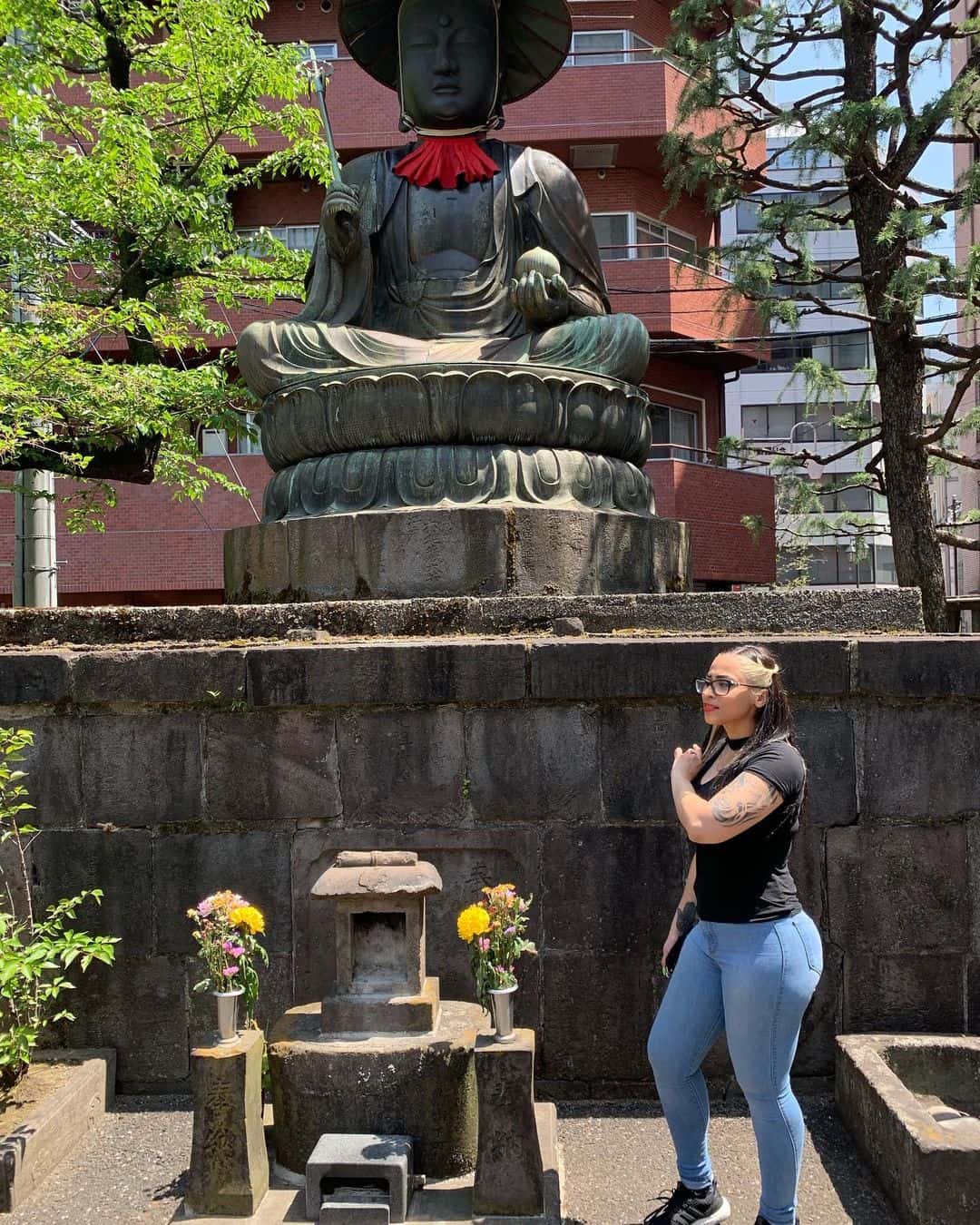
Now, when it comes to tattooed foreigners in Japan, things are pretty simple; follow the rules and you should be fine. Now, what do we mean by „rules“?
In Japan, there is a rule for everything, even tattooed foreigners. These rules include;
- You cannot enter a building or a facility if at the entrance there’s a No Tattoos sign, considering your tattoos are visible. You will be escorted out of the building, regardless of whether you’re sporting even the tinniest tattoo in the world; a tattoo is a tattoo, and a rule is a rule.
- You need to cover up your tattoos if you’re entering traditional, historic sights, such as shrines, temples, or ryokan. Even if at the entrance there is no No Tattoos sign, you still need to cover up. So, try to keep a scarf in your backpack, or simply wear long sleeves and pants if possible (if you know you’ll be visiting these sights that particular day).
- Your tattoos can be visible. Walking around the city is perfectly fine, considering your tattoos do not depict offensive symbolism, of course.
- Tattoos are not allowed in places like hot springs, swimming pools, beaches, and water parks; this applies to tourists and even the smallest tattoos.
What If I Want To Get Tattooed in Japan?
If you’re a foreigner, living in Japan, you may already know the risks a tattoo might pose to your current or future workplace. For the tourists or foreigners willing to make the jump, we’ve gathered some of the most important information you’ll need to get a tattoo in Japan;
- Finding a tattoo artist in Japan is a slow process; equip yourself with patience, especially if you’re looking to get a traditional-style Japanese tattoo. Make sure you’re not committing cultural appropriation though; unless you’re of Japanese descent, try not to get a traditional or culturally-relevant tattoo. Instead, seek tattoo artists who do old-school, realistic, or even anime tattoos.
- Be ready for a waiting list; tattoo artists are super booked in Japan, so be ready to wait. Even when you first contact a tattoo artist, make sure to give them some time to respond. The majority of tattoo artists in Japan do not speak English very well, so keep that in mind.
- Tattoos in Japan can cost from 6,000 yen to 80,000 yen, depending on the size, color scheme, style of the tattoo, etc. You may be required to pay a refundable 10,000 13,000 yen for an appointment schedule or a custom-design peace. If you cancel your appointment, do not expect the studio to return the deposit.
- Make sure to discuss the number of tattoo sessions with the tattoo artist or the studio. Sometimes the tattoo might take several sessions, which may increase the final tattoo cost. This may also be super inconvenient for tourists and travelers, so if you’re planning a short stay in Japan, this is important information you need to know right away.
- Make sure to learn some helpful Japanese vocabulary so you can communicate with the tattoo artists easier. Try to learn some basic tattoo-related phrases, or have someone translate for you.
Japanese Tattoo Terminology
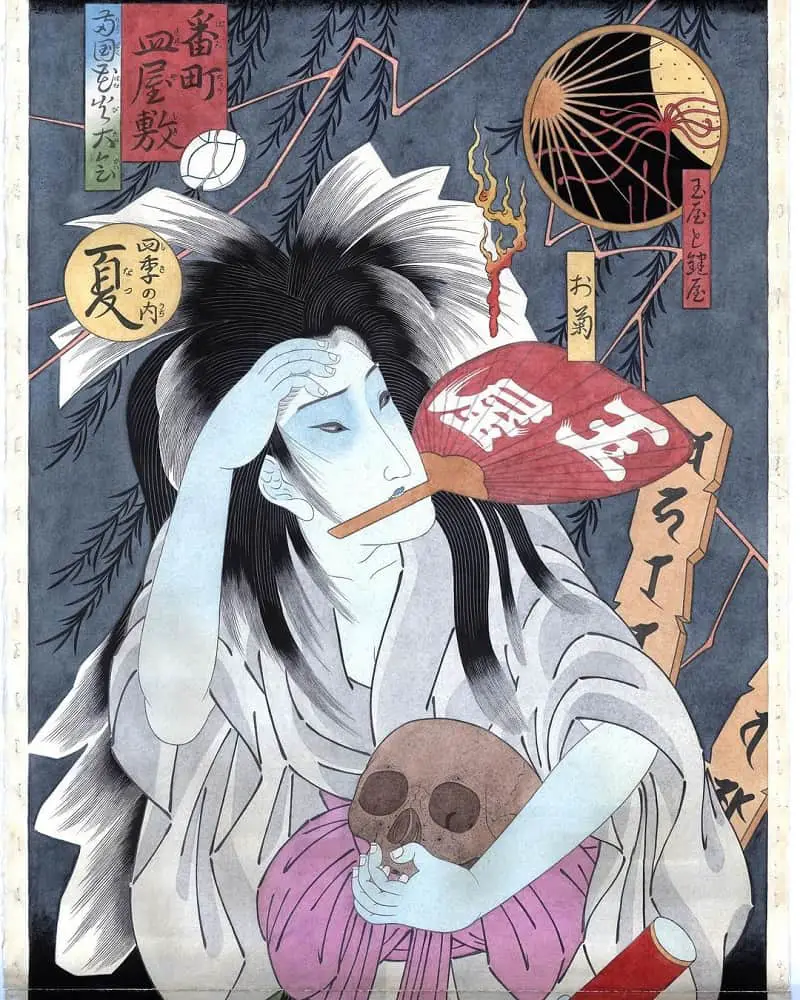
Here’s some helpful Japanese tattoo terminology you can use to contact a tattoo artist and explain what is it that you want to have tattooed;
刺青/入れ墨 (irezumi): Literally, “insert ink”- traditional Japanese-style tattoos, similar to the tattoos worn by Yakuza.
タトゥー (tatou): Similar to Irezumi, but often refers to tattoos done with a machine, Western-style tattoos, and tattoos worn by foreigners.
彫り師 (horishi): Tattoo artist
手彫り(tebori): Traditional style of tattooing, using bamboo needles dipped in ink and poked into the skin by hand.
機械彫り (kikaibori): Tattoos done with a tattooing machine.
和彫り(wabori): Tattoos with Japanese designs.
洋彫り(yobori): Tattoos with non-Japanese designs.
ファッションタトゥー (fashion tatou): Used to make a distinction between tattoos worn by criminals and tattoos worn by other people ‘for fashion’.
ワンポイント(wan-pointo): Small stand-alone tattoos (not bigger than the size of a card deck, for example.
五分彫り (gobun-hori): A half-sleeve tattoo, shoulder to elbow.
七分彫り (shichibun-hori): A ¾ sleeve tattoo, from the shoulder to the thickest point of the forearm.
十分彫り (jubun-hori): A full sleeve, from the shoulder to the wrist
Final Thoughts
Japan is yet to become completely open to tattoos, but the nation is on its way. Despite being legal, tattoos can create a bit of a disruption for even the most common of the people there. The tattoo rules apply equally to everyone, especially tourists and foreigners. So, if you’re planning to visit Japan, and you have tattoos, make sure to truly pay attention to the rules. If you’re traveling to Japan to get a tattoo there, make sure to do thorough research. All in all, we wish you the best of luck!
Also Read:
- Safe, non-toxic plant-based temporary tattoos made with 100% high-definition printing for a realistic look without the pain
- Easy to apply and remove - just stick for 20 seconds then take off
- Set includes 5 sheets with 17 fun, delicate designs like hearts, cats, smiles, suns, moons, and more
- Waterproof and long-lasting - stays on up to 2 weeks of wear
- Fashionable for women, men, girls and boys
- Place on arm, wrist, neck, leg, finger, waist, foot and more
- Great for parties, birthdays, and showing your unique style

